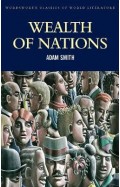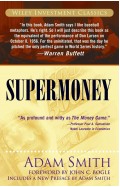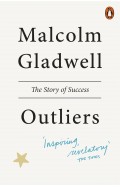The Wealth of Nations - Books 1-3
By: Adam Smith
-
Rs 2,965.50
- Rs 3,295.00
- 10%
-

You save Rs 329.50.
Due to constant currency fluctuation, prices are subject to change with or without notice.
Wealth of Nations (Classics of World Literature)
By: Adam Smith
Rs 2,065.50 Rs 2,295.00 Ex Tax :Rs 2,065.50
Zubin Mehta: A Musical Journey (An Authorized Biography)
By: VOID - Bakhtiar K. Dadabhoy
Rs 892.50 Rs 1,050.00 Ex Tax :Rs 892.50
Islam and Knowledge: Al Faruqi's Concept of Religion in Islamic Though
By: Imtiyaz Yusuf
Rs 1,487.50 Rs 1,750.00 Ex Tax :Rs 1,487.50
2084: Artificial Intelligence and the Future of Humanity
By: John C. Lennox
Rs 2,965.50 Rs 3,295.00 Ex Tax :Rs 2,965.50
The Lean Startup How Constant Innovation Creates Radically Successful Businesses
By: Eric Ries
Rs 3,415.50 Rs 3,795.00 Ex Tax :Rs 3,415.50
The Origins of Political Order From Prehuman Times to the French RevolutioN
By: Francis Fukuyama
Rs 4,045.50 Rs 4,495.00 Ex Tax :Rs 4,045.50
Manning Up: How the Rise of Women Has Turned Men into Boys
By: Kay Hymowitz
Rs 845.75 Rs 995.00 Ex Tax :Rs 845.75
The Obama Syndrome: Surrender At Home War Abroad
By: Tariq Ali
Rs 1,100.75 Rs 1,295.00 Ex Tax :Rs 1,100.75
The Quest For Meaning: Developing A Philosophy Of Pluralism
By: Tariq Ramadan
Rs 1,185.75 Rs 1,395.00 Ex Tax :Rs 1,185.75
The Pakistan US Conundrum Jihadists The Military And The People The Struggle For Control
By: Yunas Samad
Rs 1,185.75 Rs 1,395.00 Ex Tax :Rs 1,185.75
An Enemy We Created: The Myth Of The Taliban Al Qaeda Merger In Afghanistan 19702010
By: Alex Strick van Linschoten
Rs 4,197.50 Rs 8,395.00 Ex Tax :Rs 4,197.50
WikiLeaks: Inside Julian Assanges War on Secrecy
By: David Leigh & Luke Harding
Rs 637.50 Rs 850.00 Ex Tax :Rs 637.50
Islam and Knowledge: Al Faruqi's Concept of Religion in Islamic Though
By: Imtiyaz Yusuf
Rs 1,487.50 Rs 1,750.00 Ex Tax :Rs 1,487.50
2084: Artificial Intelligence and the Future of Humanity
By: John C. Lennox
Rs 2,965.50 Rs 3,295.00 Ex Tax :Rs 2,965.50
The Lean Startup How Constant Innovation Creates Radically Successful Businesses
By: Eric Ries
Rs 3,415.50 Rs 3,795.00 Ex Tax :Rs 3,415.50
The Cobweb Confession ThirdGrade Detectives
By: George E. Stanley
Rs 297.50 Rs 350.00 Ex Tax :Rs 297.50
Zubin Mehta: A Musical Journey (An Authorized Biography)
By: VOID - Bakhtiar K. Dadabhoy
Rs 892.50 Rs 1,050.00 Ex Tax :Rs 892.50
Wealth of Nations (Classics of World Literature)
By: Adam Smith
Rs 2,065.50 Rs 2,295.00 Ex Tax :Rs 2,065.50
Islam and Knowledge: Al Faruqi's Concept of Religion in Islamic Though
By: Imtiyaz Yusuf
Rs 1,487.50 Rs 1,750.00 Ex Tax :Rs 1,487.50
2084: Artificial Intelligence and the Future of Humanity
By: John C. Lennox
Rs 2,965.50 Rs 3,295.00 Ex Tax :Rs 2,965.50
The Lean Startup How Constant Innovation Creates Radically Successful Businesses
By: Eric Ries
Rs 3,415.50 Rs 3,795.00 Ex Tax :Rs 3,415.50


















-120x187.jpg?q6)










-120x187.jpg?q6)



-120x187.jpg?q6)




